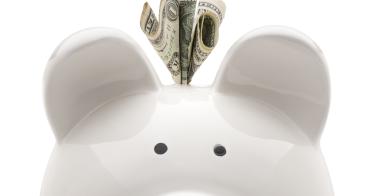The First Law of Holes states, “When you’re in a hole, stop digging.”
This simple proverb is apparently too complicated for many officials in Washington, who want to create a new permanent entitlement program at a time when the gross national debt has climbed to $34.4 trillion and will grow by trillions more per year for the foreseeable future.
Rather than find a way out of the deepest budget hole in human history, too many of the nation’s leaders remain focused on shoveling even faster.
A perfect example is the possible extension of the Affordable Connectivity Program. Its stated purpose is providing subsidies for broadband internet service to households earning up to 200% of the poverty level. But it has been used to pad corporate profits and state government budgets.
Created during the pandemic, the program will likely run out of funding this spring unless Congress steps in.
>>> Skip Breakfast To Reduce Inflation? No, Elites: It’s the Feds Who Need To Diet
Since that would mean allowing a government program to expire, there’s a chorus of corporate shills, welfare supporters and even some Republicans calling for new taxpayer dollars to keep the entitlement going.
Worse, the Biden administration wants to expand eligibility standards to the point where over one-third of households would qualify, driving costs into the tens of billions of dollars per year—resulting, naturally, in higher inflation and bigger deficits. This also sets up a precedent to further expand and make permanent the woke Biden administration’s tech agenda, including using taxpayer dollars to promote unsupervised internet access for children.
Supporters claim that because 20 million households are receiving the broadband benefit, they would all lose internet access if the program expires. However, roughly 80% of recipients already had internet plans before applying for the handout, and internet access was steadily expanding before the program began. Further, a recent survey implies that at most, only 16% of beneficiaries might drop their internet service.
Analysis by economist Paul Winfree has found that the program is highly inflationary, meaning that internet users end up paying more in areas where the broadband subsidy is popular. Winfree also shows that internet service providers would reap billions of dollars in extra profit per year if the program were renewed.
The program has also suffered from massive fraud, which would be even harder to prevent if it were expanded along the lines of the Biden proposal. Though promoted as a way to expand access and build infrastructure, the program has meaningfully achieved neither.
In fact, if Congress wanted to do something to promote broadband development, they could address glaring issues in the tax code. The U.S. tax code forces construction expenditures to be deducted from taxes over decades on long depreciation schedules. This neuters the value of the deduction and effectively double-taxes these investments made by the private sector to expand our infrastructure.
Proper tax treatment would be to allow these costs to be deductible in the year that they occur. This reform would properly align our tax code and promote growth in a sustainable manner. Instead, this program is yet another example of the government handing out favors at the expense of good policy that would actually promote the well-being of all Americans.
>>> Scranton Joe and the Temple of Doom Spending
Then there's the issue that Washington always tries to ignore: the cost.
The broadband welfare program began as part of the pandemic-era spending spree that cost trillions of dollars, driving the wave of inflation that is still hammering family budgets. Since the program has no dedicated funding source, extending it would mean either new taxes (likely on internet plans) or more inflationary deficit spending.
With this being an election year, tax hikes are less likely to be on the menu, which means putting the price on Uncle Sam’s nearly maxed-out credit card.
The 2024 deficit is already projected to reach $1.5 trillion, or roughly $11,500 for every household in the country. Net increases to spending and tax credits would make this year’s budgetary gap even deeper and quickly set the stage for $2 trillion-plus deficits.
That degree of irresponsibility would invite more punishing inflation, higher interest rates on both federal debt and home mortgages, and saddle future generations with economic stagnation.
Rather than making Americans more dependent on the federal government by creating a new entitlement for internet service, legislators should take the opposite approach: shrinking the number of wasteful and politically corrupt programs, lowering deficits and disposing of the Biden administration’s ruinous agenda.
Washington has been digging the hole for decades, but it’s not too late to stop.
This piece originally appeared in MSN



